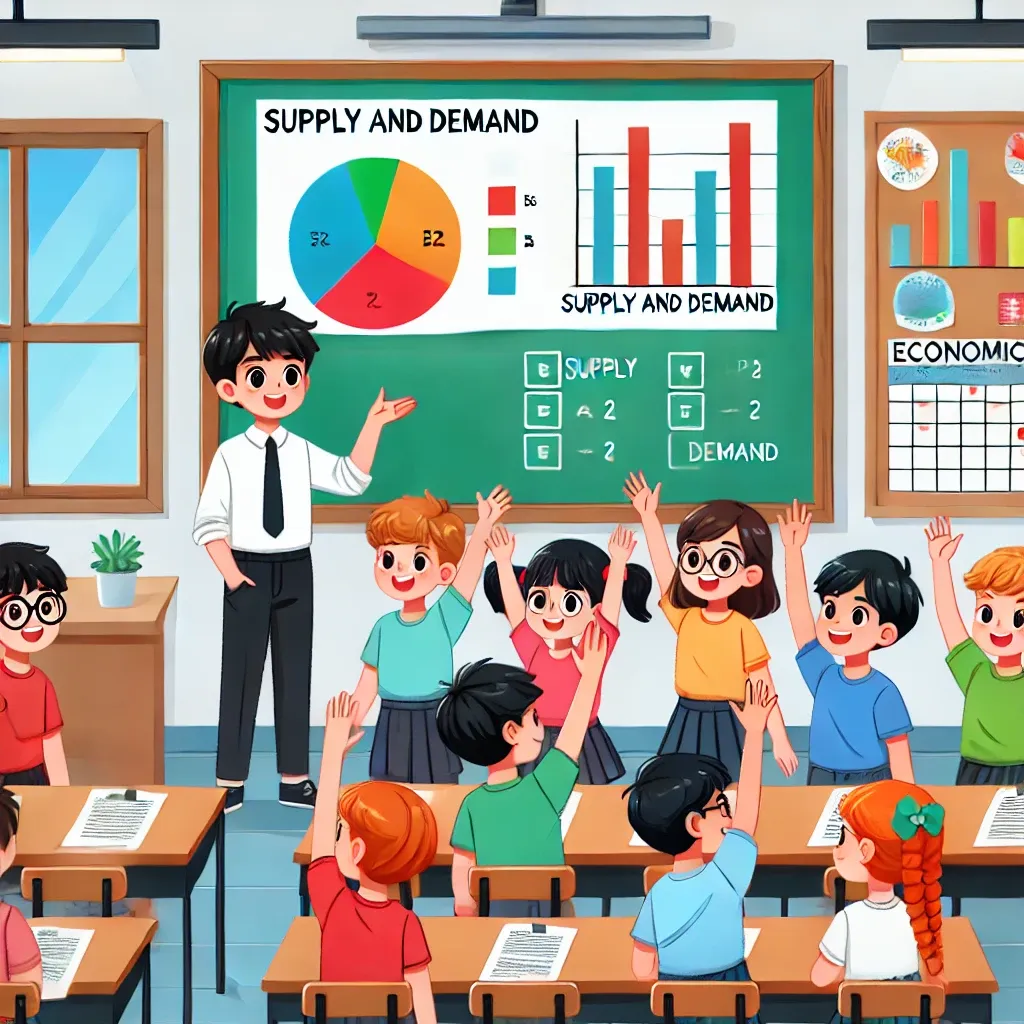Are you curious about why elementary school students should learn about economics? Discover the importance of early economic education, the best programs to implement, and why it is a crucial part of a child’s learning journey. Read on for expert insights!
Introduction
Economic education at the elementary school level has gained increased attention in recent years. As the world becomes more interconnected and economically complex, it is crucial for students to understand basic economic principles early on. This education not only prepares students for personal financial decisions but also builds a foundation for a well-rounded, informed adult life. This article will explore elementary economy education, the elementary school economic education program, and the necessity of economic education for young learners.
Elementary Economy Education
What Is Elementary Economy Education?
Elementary economy education refers to the introduction of economic principles at a basic, age-appropriate level. Concepts such as supply and demand, scarcity, and choice are simplified and made accessible for young students. The goal is to give them an understanding of how the world works economically and how individual choices can have wider consequences.
Why Teach Economics Early?
Teaching economics in elementary school can have several benefits:
-
Foundational Knowledge – Students learn how money works, what resources are, and how goods and services are exchanged.
-
Critical Thinking – Economic education encourages students to think critically about the world around them, making connections between what they learn and the decisions they make.
-
Real-world Applications – Kids begin to understand the real-world implications of their daily choices, such as budgeting their allowance or deciding whether to save or spend.
-
Fostering Financial Literacy – Teaching the basics of economics is a stepping stone to financial literacy, which will be essential throughout their lives.
How Can Economics Be Taught to Young Learners?
Teachers use a variety of interactive and engaging methods to introduce economic concepts. Some effective teaching strategies include:
-
Storytelling – Stories about characters who make economic choices can help children understand key concepts.
-
Games – Activities like running a classroom “store” or playing “economic role-playing games” can provide hands-on learning experiences.
-
Simulations – Teachers might set up simulations where students make choices with limited resources and see the outcomes of those decisions.
👉 Learn more about elementary economy education programs 👈
Elementary School Economic Education Program
Key Elements of the Program
An effective elementary school economic education program should focus on engaging and practical approaches that make economics relevant to children. A few key elements to consider include:
-
Simple and Clear Concepts – Economic concepts should be broken down into easily digestible parts, such as understanding the idea of “wants” versus “needs.”
-
Hands-on Activities – Interactive lessons like creating a budget or running a school economy (selling items or earning classroom currency) help children understand how money flows in society.
-
Incorporation of Technology – Using apps or educational websites can make learning economics fun and interactive, adding an extra layer of engagement.
Examples of Successful Programs
Several schools have implemented effective economic education programs with remarkable results. For example:
-
The Junior Achievement Program – This program offers age-appropriate lessons on economics, finance, and entrepreneurship. It’s widely used in elementary schools to build foundational knowledge in economics.
-
Financial Literacy Week – Many schools dedicate a week each year to teaching students about personal finance, which includes lessons on saving, spending, and understanding how economic systems work.
The Role of Teachers
Teachers play a crucial role in shaping how students understand economics. The best programs involve teachers who:
-
Are trained in basic economic concepts.
-
Use engaging methods to teach abstract ideas.
-
Foster an environment where students feel comfortable asking questions and exploring new ideas.
👉 Explore more on how to set up an economic education program 👈
Necessity of Elementary School Economic Education
Why Is Economic Education Essential for Young Learners?
In today’s world, financial literacy is more important than ever. Understanding economic principles helps children make informed decisions, both in their personal lives and as citizens of society. Let’s take a look at why it is necessary to introduce economic education at such an early stage:
-
Early Decision-Making Skills – Teaching kids about economics helps them learn how to make informed decisions in everyday life, like deciding how to spend their money.
-
Understanding the Economy – Children gain an understanding of the world economy, which can influence their views on issues like government policies, business practices, and global trade.
-
Building Financial Responsibility – Early education teaches children about saving, investing, and the value of money, setting them up for financial independence in adulthood.
The Growing Need for Economic Education
As students grow older, they encounter complex financial situations such as managing personal budgets, navigating taxes, and understanding credit. Without a solid foundation in economics, students may struggle to manage these challenges. Studies show that students who learn basic economics at an early age perform better in financial tasks later in life.
Addressing the Gap in Current Education Systems
In many school curriculums, economics is often introduced too late, sometimes only in high school. By that time, students may have already developed poor financial habits or misconceptions about how the economy works. Introducing economic education in elementary school can fill this gap and provide students with the tools they need to succeed financially.
👉 Discover the importance of early financial literacy in education 👈
Conclusion
Elementary school economic education is not just about teaching kids how to count or balance budgets; it’s about preparing them for the complexities of the modern world. By introducing economic concepts early on, we equip children with the tools they need to make better decisions in life, both personally and professionally. As we continue to move toward a more interconnected world, the importance of economic education in elementary schools will only grow.
Remember, economic knowledge isn’t just for future economists – it’s for everyone. Early education can shape a generation of financially savvy, well-informed citizens.






